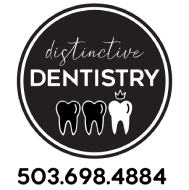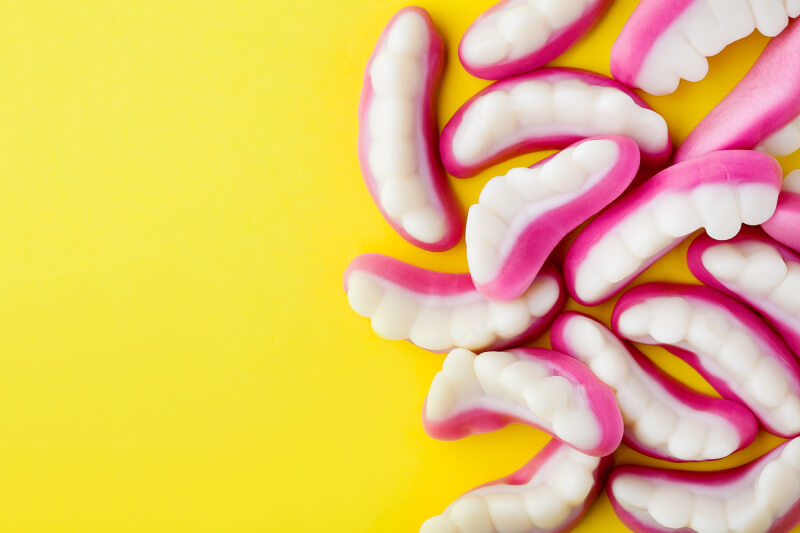Marshmallow teeth! How can teeth be soft? Do they fold up in your mouth or break when you bite into an apple? Well, not quite!
Most people believe they have “soft teeth” if they visit the dentist because of tooth sensitivity, cavities, toothaches, and other issues. However, the phrase “soft teeth” itself is a misnomer.
Teeth can become weakened or more prone to damage and decay due to any number of factors. Whether you have “soft teeth” or not is usually defined by the condition of your tooth enamel. Tooth enamel is the hardest part of your teeth (and in fact, it is the hardest substance in the body!). It is the outermost layer of covering on your teeth and is made up of minerals, making it the hardest substance in the human body. If the minerals forming the enamel get eroded, the softer, more sensitive inner layers of the teeth are exposed and become weak or “soft.”
This can cause pain and tooth sensitivity, especially when consuming hot, cold, and sweet things.
If you’re someone who has thought that “soft teeth” run in your family and that there wasn’t much you could do about it, think again! Genetics really has very little to do with your teeth being prone to cavities, except that we usually get our oral bacterial flora and dietary habits from our parents. And it is improbable that you inherited your “soft teeth.”
While it is true that mothers who have cavities while pregnant can pass the bacteria which cause cavities to the baby, the condition is not genetic. Bacteria are transferred from the mother to the baby or child through saliva.
Another misconception that many people tend to have is that big life events such as pregnancy, breastfeeding, a diabetes diagnosis, etc., can cause soft teeth. However, the fact is that dental decay is more likely due to poor nutrition, dietary practices, and/or hygiene neglect. Significant events or traumas in life can result in changes in oral health, but they do not cause your teeth to soften.
It’s clear then that good dental hygiene practices are the best means of preventing tooth decay, and nearly 100% of cavities are preventable.
We’ve seen how tooth decay caused by poor oral hygiene is often mistaken for “soft teeth.” Therefore, it is important to check for symptoms of decay rather than attribute it to any softening of teeth. Signs of tooth decay should be checked to determine what brought it on and corrective action is necessary to stop continued damage. Some of the most common reasons for decay and poor oral health in children and adults are described below.
The build-up of bad bacteria in the mouth is one of the primary reasons for deteriorating tooth enamel. Brushing your teeth thoroughly and properly twice a day is necessary to avoid this situation.
Also important is the type of bristles on your toothbrush. Use a soft-bristled brush gently to clean the bacteria and plaque from teeth because scrubbing with a hard-bristled brush can erode the enamel over time.
Bacteria in your saliva that contribute to cavities can be passed from one person to another, usually through sharing food, utensils, or cups. Avoid the risk of cross-contamination through saliva by not sharing utensils and food. This is especially true for children who may be sharing food and drinks with friends.
The combination of bacteria and sugars in the mouth creates acid. This acid causes the minerals in the enamel to dissolve and weaken teeth slowly. The ultimate result being, cavities. Therefore, a diet too high in sugar or acid can lead to poor oral health, decay, and cavities. It is best to enjoy them in moderation.
You may also have gastroesophageal reflux disease (GERD), which causes acid to come up from the stomach into your mouth. This, too, can damage your enamel and weaken your teeth.
Both these conditions can be helped by drinking plenty of water and maintaining a diet of fruits and vegetables.
Some people may experience night-time teeth grinding or frequent jaw clenching, which can erode the enamel and make your teeth vulnerable to damage and decay. Get medical advice for this condition sooner rather than later.
Any trauma or illness that brings on a high fever in children can cause teeth to be damaged while they are developing. A severe fever can sometimes stop the work of the cells responsible for mineralizing teeth. This could cause lower amounts of minerals to be absorbed by teeth and result in weak enamel.
Tooth enamel may change in appearance and be weaker than normal if your teeth have been exposed to a lot of fluoride during the formative years – up to age 8. Fluoride exposure in children can cause their teeth to erupt with fewer minerals, thus making their enamel weaker than other children their age.
Ultimately, problems with your teeth most likely occur due to poor oral hygiene. Regularly scheduled dental cleanings and check-ups can help restore your oral health and keep your teeth healthy and strong.
Contact Dr. Klemann at Distinctive Dentistry in Clackamas at (503) 698-4884 to schedule your dental cleanings and regular check-ups.


